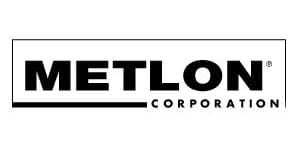In a landmark victory for university anti-sweatshop activists, a company that produced Terrapin gear recently agreed to re-open a Honduran factory that was shuttered after workers there attempted to unionize.
The university cut its contract with Russell Athletic Corporation in April after national workers’ rights organizations and student activists alleged the company busted a union at its factory in Honduras, which was shut down shortly afterward. A nationwide student campaign led 96 colleges and universities to sever ties with the manufacturer, culminating in Russell’s decision last week to reopen a newly unionized factory and to rehire the 1,200 previously dismissed workers.
“This agreement … represents one of the most significant steps forward for worker rights in the global apparel industry in the last twenty years,” Worker Rights Consortium Director Scott Nova said in a press release. “The strong and effective action taken by the University of Maryland in enforcing its labor rights code of conduct played a vital role in producing this historic result.”
University licensing director Joe Ebaugh said once the company’s probationary period ends, the university will likely reinstate their contract.
“I think that Russell went beyond where they had to, and I’m very proud that they came to the decision that they did,” he said. “Once they’ve jumped through all these hoops, I think we should reward them for compliance.”
Although members of Feminism Without Borders, who pressured the university for years to end the contract, were elated with the resolution of the Russell matter, they said the case is symptomatic of a larger problem within the collegiate apparel industry and that the potential for more abuses exists.
“We’re just not monitoring these factories enough,” Feminism With Borders member Liz Ciavolino said. “The problem with our current system is that we punish people — in this case a factory — when they do something wrong, but we’re not encouraging good behavior.”
The university belongs to the Worker Rights Consortium and the Fair Labor Association, both of which require companies who produce university apparel to agree to a fair labor code of conduct — but the Russell case proves that it isn’t enough, activists said. Instead, they believe the best way to ensure ethical treatment of factory workers lies with the Designated Suppliers Program, a proposal that would require the universities who sign on to have their apparel produced exclusively at pre-approved factories.
Although the Designated Suppliers Program has yet to be implemented at the university, activists said a show of support from the university would help to get the proposal off the ground.
“As you can see with the Russell case, we as a school have a lot of power to do something in this industry, and we need to continue to use that power,” Ciavolino said.
Source: The Diamondback Online, University of Maryland, November 23, 2009












